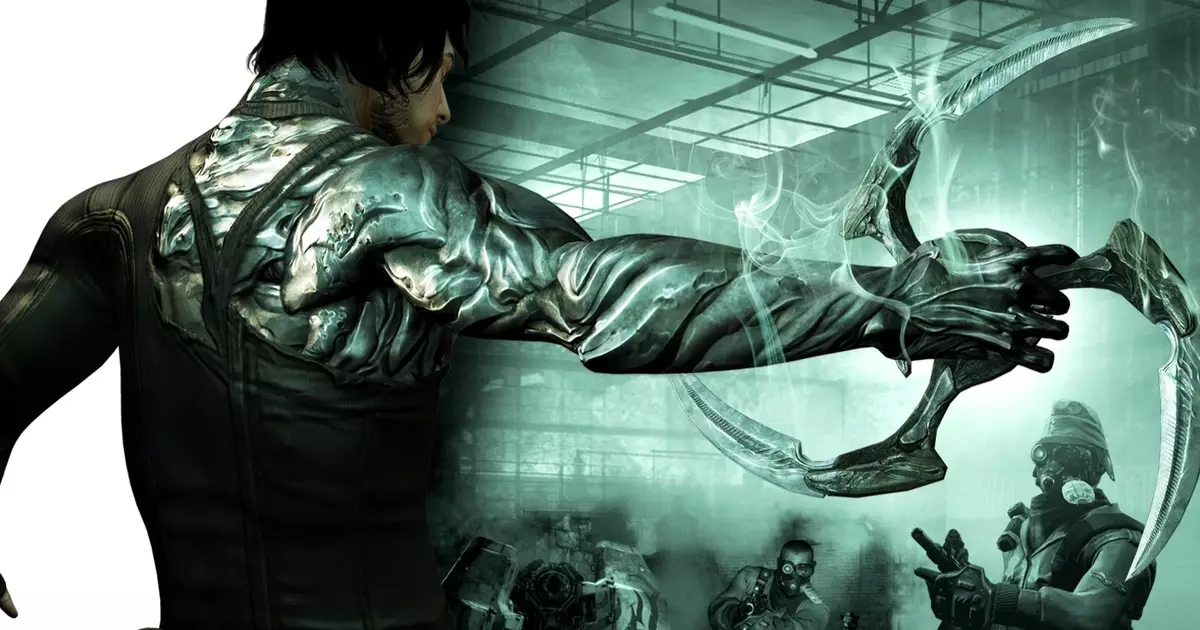In the vast landscape of video game history, many titles emerge with grandeur, only to eventually fade into the background noise of the industry. Among these is **Dark Sector**, a game developed by Digital Extremes that was released in 2008. Initially bounded by the shadows cast by its more illustrious peers, Dark Sector found itself labeled as another mid-tier action title devoid of lasting impact. However, as time marches on, the game’s influence, although subtle, can be traced forward to one of the studio’s greater successes, **Warframe**.
Dark Sector ignited players’ interest through its gritty narrative and novel mechanics. Set in a modern-day world punctured by bioweapons known as “Technocytes,” the game featured a protagonist navigating a visually barren but engaging environment. The central gameplay element revolved around a glaive, a weapon that acted as a lethal boomerang. This singular piece of creative weaponry allowed players to solve puzzles, retrieve items, and combat foes from a third-person perspective, creating a unique gameplay dynamic.
Despite these innovations, many found the experience to be relatively forgettable upon its release. The characters and world-building failed to achieve the depth needed to transcend beyond its contemporary gaming conditions, which were filled with more wholly realized narratives. Thus, Dark Sector straddled a precarious line: it was inviting yet ephemeral, grabbing attention momentarily without securing a devoted following.
Digital Extremes: From Collaborative Origins to Independent Ventures
Before the team’s efforts with Dark Sector, Digital Extremes was primarily recognized for its collaboration with Epic Games on the Unreal Tournament series. This association set high expectations for their projects, but Dark Sector did not quite meet the bar that was set by the monumental successes of Unreal Tournament. The game transitioned from its sci-fi roots—a setting featuring a protagonist clad in an exotic mechsuit—to a more relatable narrative, one that was emblematic of the gaming trends at that time. Nonetheless, this was a pivotal moment in the studio’s evolution, allowing them to harness their creativity and establish an identity within the industry.
After the game’s lukewarm reception, Digital Extremes revisited their imaginations, extracting ideas from their original plans and sculpting the foundation for Warframe. This transitional journey is significantly more remarkable in retrospect, as it emphasizes the studio’s growth and adaptability in the fast-paced world of video game development. Warframe, with its stunning visuals and engaging gameplay, rapidly acquired a dedicated fanbase, and its inception can surprisingly be traced back to the overlooked Dark Sector.
Fast forward to today, and Digital Extremes is celebrating the legacy of Dark Sector by offering the game for free on Steam. This act serves dual purposes: revisiting a forgotten title while also providing a nostalgic experience for dedicated Warframe players. As the franchise matures and evolves through continual updates, the decision to return to Dark Sector feels like a tribute to roots that many newer gamers may not fully appreciate.
Furthermore, the impending release of Warframe’s 1999 expansion hints at a deeper connection between the two titles. It showcases how something perceived as mediocre can culminate into a multifaceted experience ten years later. Those who are inclined to explore the evolution of video games will find many surprises in revisiting older titles like Dark Sector; there is a story there that reflects innovation, risk, and perseverance.
Ultimately, Dark Sector serves as a reminder of how the gaming world continues to evolve, pertinent to creativity and cultural influences within the medium. Though it may not have made significant waves upon its initial release, its legacy resonates within the frameworks of more successful titles like Warframe. For gamers, returning to titles like Dark Sector can often unveil layers of history, bringing to light the intricate tapestry woven over decades of development and exploration within the industry. As the gaming world continues to expand, recalling the less celebrated games is crucial for understanding how far we’ve come and the creative journeys that lie ahead.


Leave a Reply